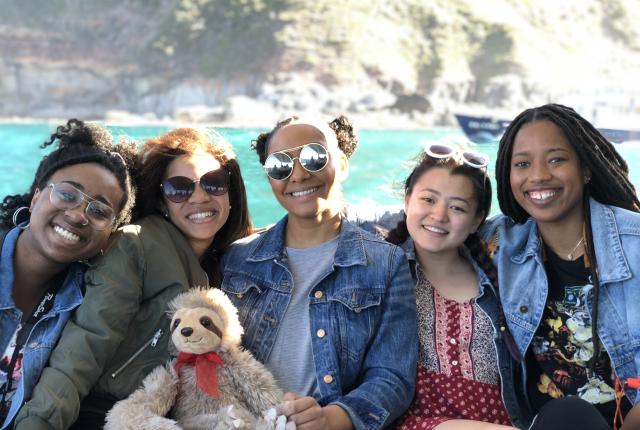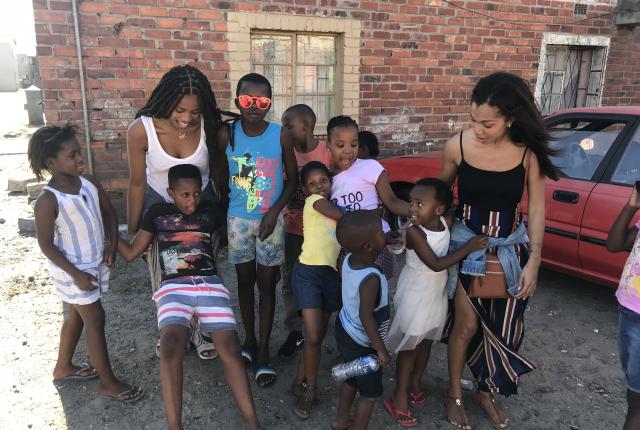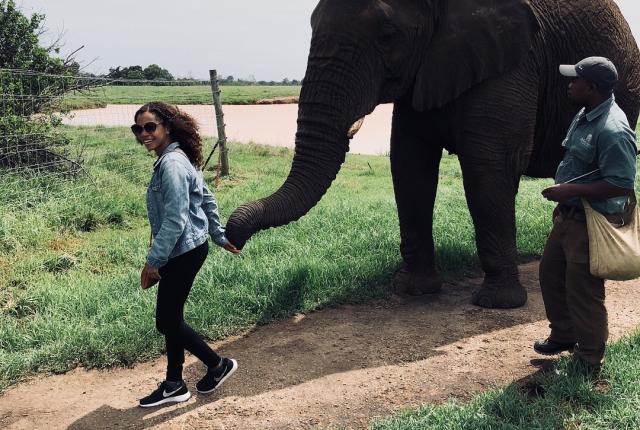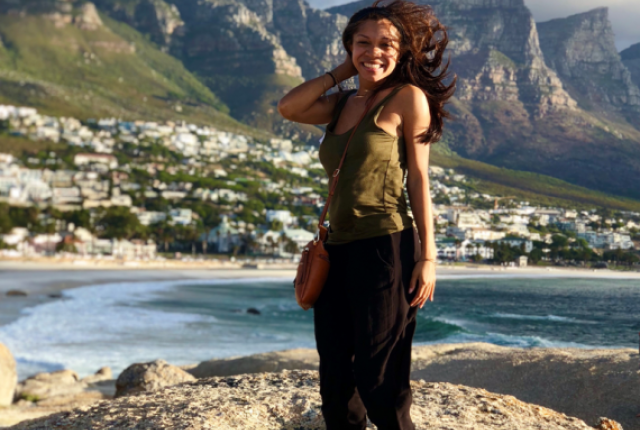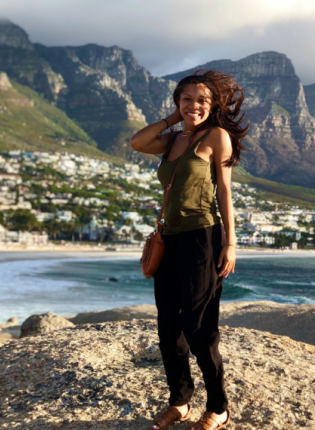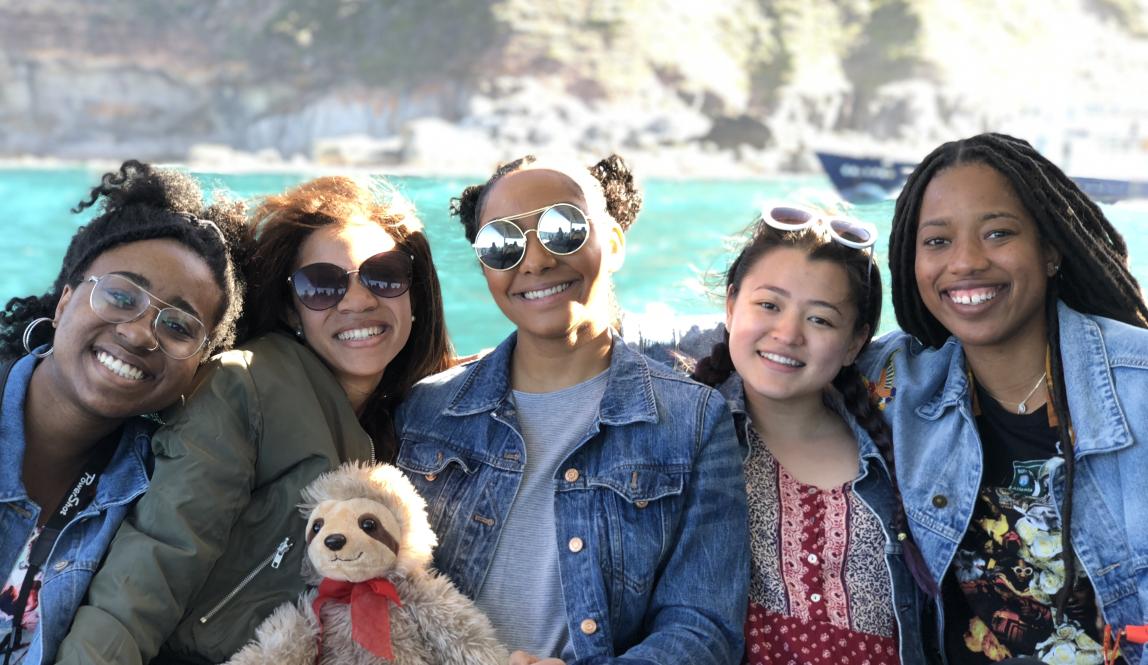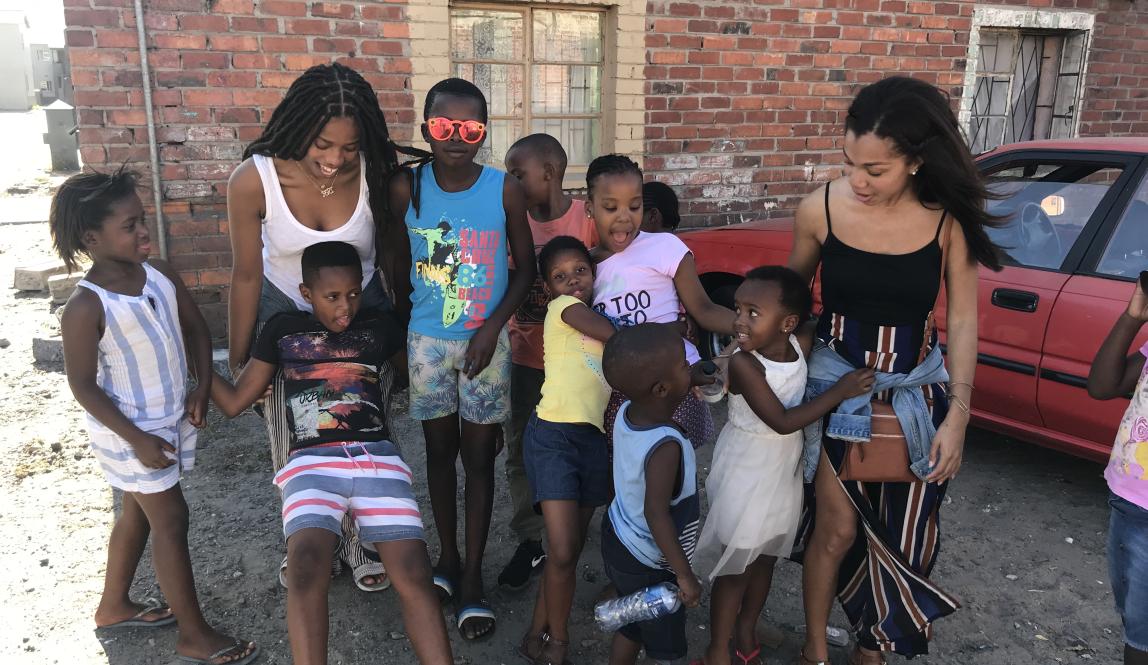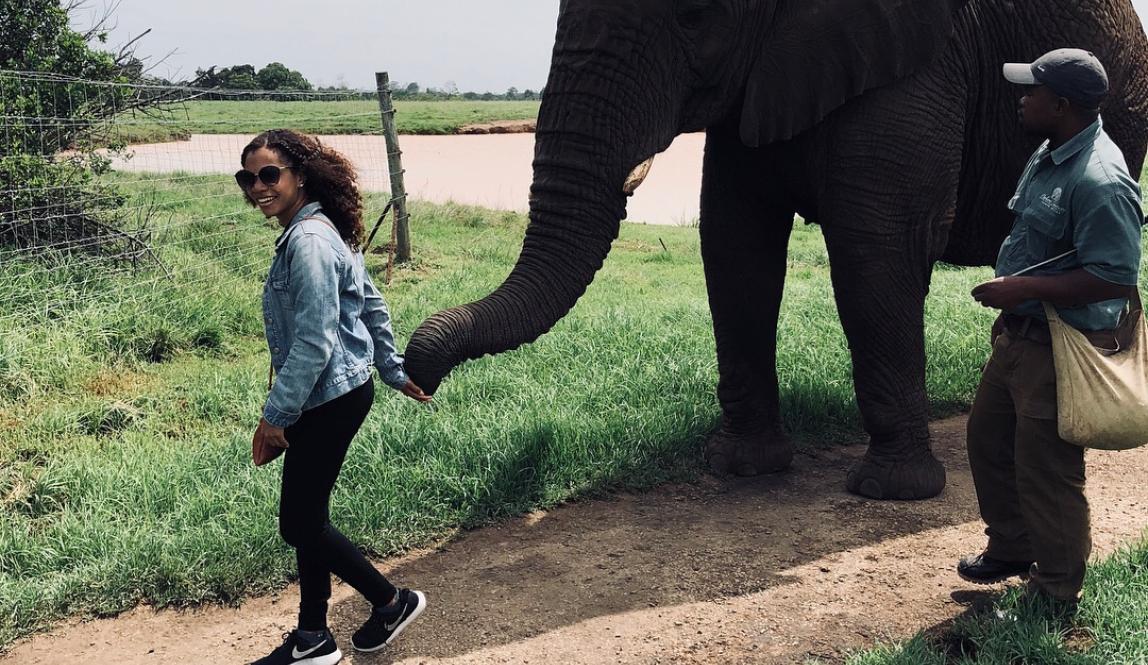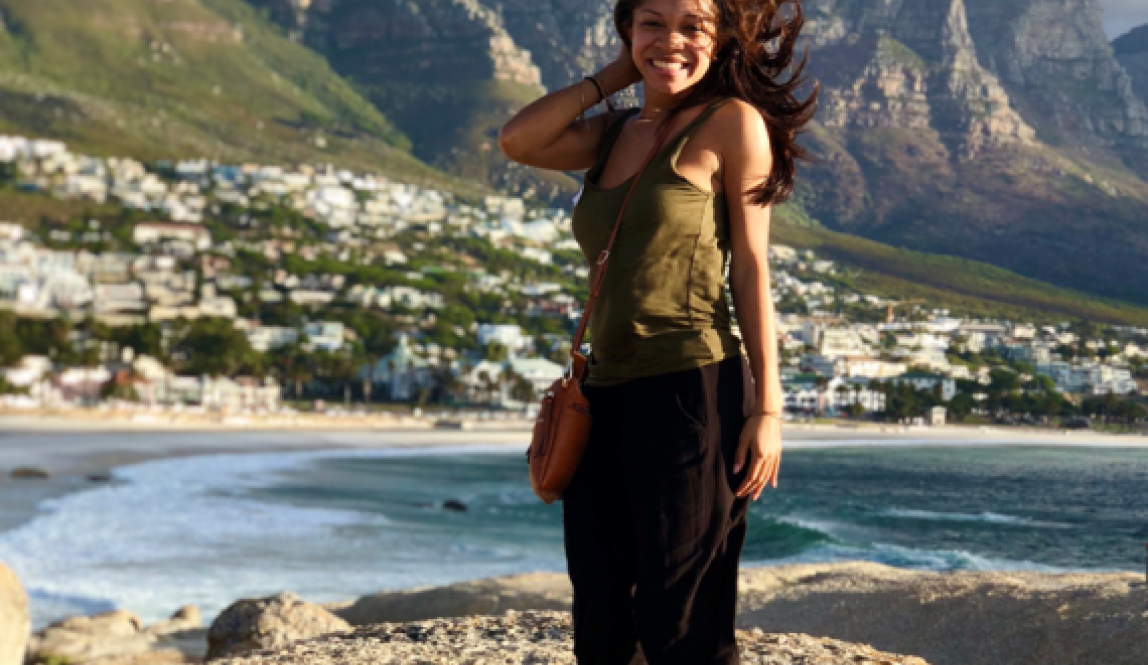Interview
What words would you use to describe your identity/identities?
By societal structures, I would identify as a heterosexual, African-American woman, who is led to help people. I get my joy from seeing other people have joy, so I think that is a large part of my identity.
What motivated you to choose to study abroad?
I first started thinking about studying abroad in high school and knew that I wanted to do it in college. I wanted to go to Italy or Spain, and it was a rude awakening when I realized that I couldn't speak the language, and so probably wouldn't be so successful in that. What sold me on the Cape Town program was that it was the only program that my school offered that had a service component. I would get to work in the township and have a very hands-on service learning opportunity face to face, which I really wanted to do since it's what I do in Miami. I've wanted to go abroad for years, and I wanted to do it in a mission-trip way or with a church, but studying abroad meant I could be immersed in another culture was a good idea to me. I went to London last year with my school, and I realized that this was nothing too different from America and I wanted something more foreign—something different. I felt that I would get to Europe at some point in my life, but Africa, I just wanted to check that off.
When you studied abroad, did your experience influence your identity(ies) in significant and/or surprising ways? If so, how?
Yes, I think it's been flipped on its head. I think, specifically with my racial identity. Being African-American in the United States. I just accepted that label without much more digging or much more wondering, but coming here, I realized that African-American is not really specific at all. Here, people can identify themselves not just as Black or African. It's I'm Xhosa, or I'm Zulu--people can trace back to the exact tribe, the exact language that their ancestors spoke, the exact soil that they stood on. I think that it's been really heartwrenching for me because I realized that all of that was lost for me and other Black Americans with the slave trade, and that's why our identity stops at "I'm black, and I'm from Georgia," but, that's not our ancestor's soil; that's not really where we come from, and realizing that my racial identity isn't what I thought it was. It has been a process for me to come to realize that I don't have this part of myself that a lot of other black people I'm meeting in Africa have.
How are you rectifying the realization about how you perceive your identity?
I don't think that there's really a way for you to rectify it. I think being aware of it is a much bigger step than most Black Americans have taken. Most Black Americans don't even know that something like that is missing from their identity—it's so generational at this point. People can trace as far back as maybe their great-grandmother who was a slave, but that's it, and people don't realize that that's not normal. I think that just by coming here and realizing that it's not normal, is a big step. Going further, it's just something that I have to accept was part of colonization and the slave trade. My ancestor's plight was slavery; my plight is not knowing who I am.
How did you interact with the community within your service-learning placement?
My placement was at Chaka Education and its through UCT. We go into the townships and work with kids after school. We teach them math, literacy, and manners. We teach them whatever we can before their attention span runs out. Through that, I've worked with two different programs, in two different townships. One is Manenburg, which is a Coloured township, and I also work in N'yongo, which is a Black township.
What are the differences that you see, as an African-American abroad, between the Coloured township and the Black township?
The differences are jarring. I started at the black township first, and I noticed that on the way, most of the townships were shacks and just destitute poverty. When Americans think 'Africa,' N'yongo is along the lines of what probably comes to mind. At the schools, a lot of the kids didn't have shoes. A lot of them have physical indications that they're not living in the best health conditions, like rashes, things growing on them-- it's just clear that the conditions that they're living in aren't livable, vs. Manenburg, which is poverty, yes, but it's a different type of poverty. When you think of your low-income American ghetto, that's Manenburg; It is like the Projects.
Some of the kids didn't have shoes, but I think it was by choice (they took their shoes off to run around, things like that). You can just see the difference in the way that they're kept and the surrounding area. Manenburg is also gang-ridden and drug-ridden, so it has its issues. But at first glance you can tell that the Coloured township seems to have more privilege there vs. the Black township. Both are poor, but, to me, there are obvious levels to it.
How did you feel about using the word 'Coloured'?
It's a cultural difference, and it took a while for me to get used to. When I was first looking into the program, and someone from South Africa came to talk to us about the program, he used the word 'coloured' and I almost re-thought my whole idea to go. I was thinking, what kind of race-relations do they have? But, it's a racial group here and they self-identify proudly as Coloured. That's something I've gotten used to saying because that is how they identify. Coloured means lighter skinned black people or mixed-race people. Or like, Malaysian culture, a lot of them are Muslim--they have their own culture here, so it's not like the Jim-Crow South colored/white situation, it's different.
Can you give us a summary of what race-relations look like in Cape Town?
If I could put it in one word, I would say "blunt." In America, people try to hide from conversations about race—it's taboo. you can't identify somebody by their color. If I said, "the black girl" or "the white girl," people would be offended, but that isn't what they do here. Race is not something they shy away from here, even if it makes a space uncomfortable, which I respect. I've been in several situations where white people and black people have said things to me that were jarring. They are very blunt on how they feel about another race, or stereotypes on another race. I think that the fact that they are willing to talk about those things, even if it's in a way that everyone won't agree with is so much more progressive than America> To me, it also seems more productive because at least if people are talking about it, then that creates a space for discourse. For example, if I don't know that you're thinking a racist thought, then I can't correct you on it, or try to make you see it in a different way, but if you say that out loud, I can disagree with you and start a conversation, which is what I've been doing, and it's refreshing. To answer the original question, race relations here are tense. Apartheid's wounds are very fresh and still kind of open. There's a lot of anger between the races, but as I said, the fact that they talk about it, makes me feel like it's going to get better.
Has studying abroad impacted your educational and/or professional aspirations or path? If so, how?
Studying abroad has inspired me to not just go straight into the workforce. I think I'm going to apply for Fulbright so that I can go somewhere else and do the same kind of work. That's the biggest thing. It's expanded my horizons on thinking about post-grad opportunities, because before studying abroad, I was just going to work at a small market T.V. station right away and be miserable for a couple of years, before trying to work my way up. But, once you're in that field, you're in it--you're not going abroad anywhere. It's inspired me to take my time, soak in more experiences and travel more while I can and then go into the workforce. Also, it made me think about how I can tell stories, not just domestically or from a Western perspective, but it made me have a thirst for telling stories from other places too. It showed me that the world is a lot bigger than the States. There are a lot more stories out there that need to be heard. I never thought about international journalism, but I'm open to it now.
What were your takeaways from your study abroad experience?
First, I feel like Americans do not realize how privileged we are. I feel like a lot of people back home really need a wake-up call. The types of poverty I've seen here, are the types of poverty I've never seen in my life and it made me put things in perspective because the kids that I work with are some of the happiest kids that I've ever seen, but are also some of the poorest.
It makes me ask myself what I'm complaining about. It makes you really think about yourself and how you appreciate what you have or don't appreciate what you have. It's a lot of different things; even the language situation here has made me realize how self-centered the West is. People here know 4-5 languages, and I can barely speak Spanish, and that's something I need to speak as its part of my heritage. I feel like studying abroad has taught me that I need to expand a little bit more. From the school perspective, I'm much more grateful for the University of Miami, having now experienced a different type of school system. I have a strong appreciation now for the education that I have in the United States and it's such a privilege.
What advice would you give to students who identify similarly to you about studying abroad?
Get comfortable with being uncomfortable. There's going to be a lot of uncomfortable conversations that are going to happen, and some of it will be directed towards you. You're going to start to view your privilege in a way that you never have before, but it will be eye-opening. Don't run away from that. Erase it and see how you can be part of a change and take it back home. Your identity is going to be challenged and its important to open yourself to people.

